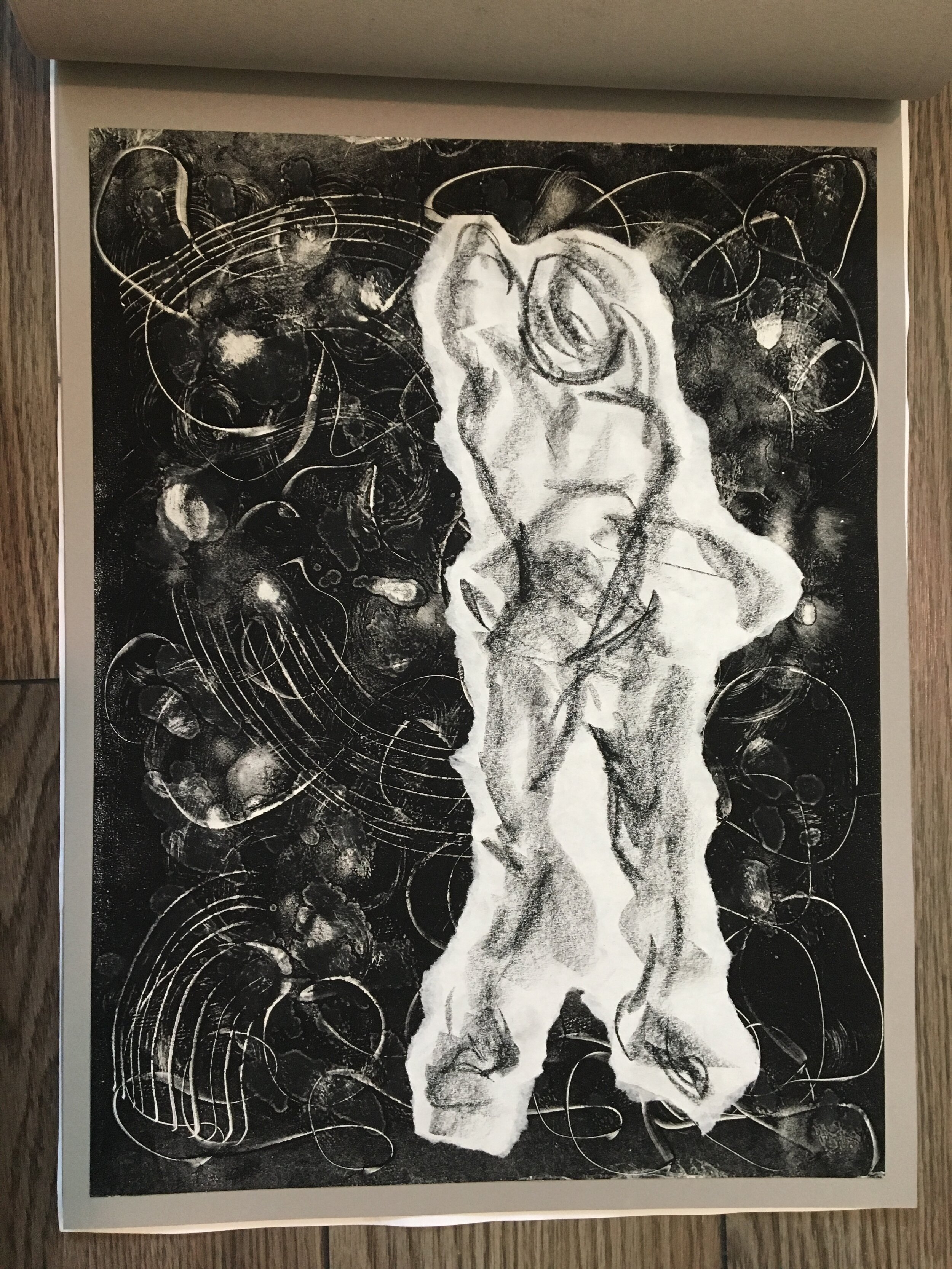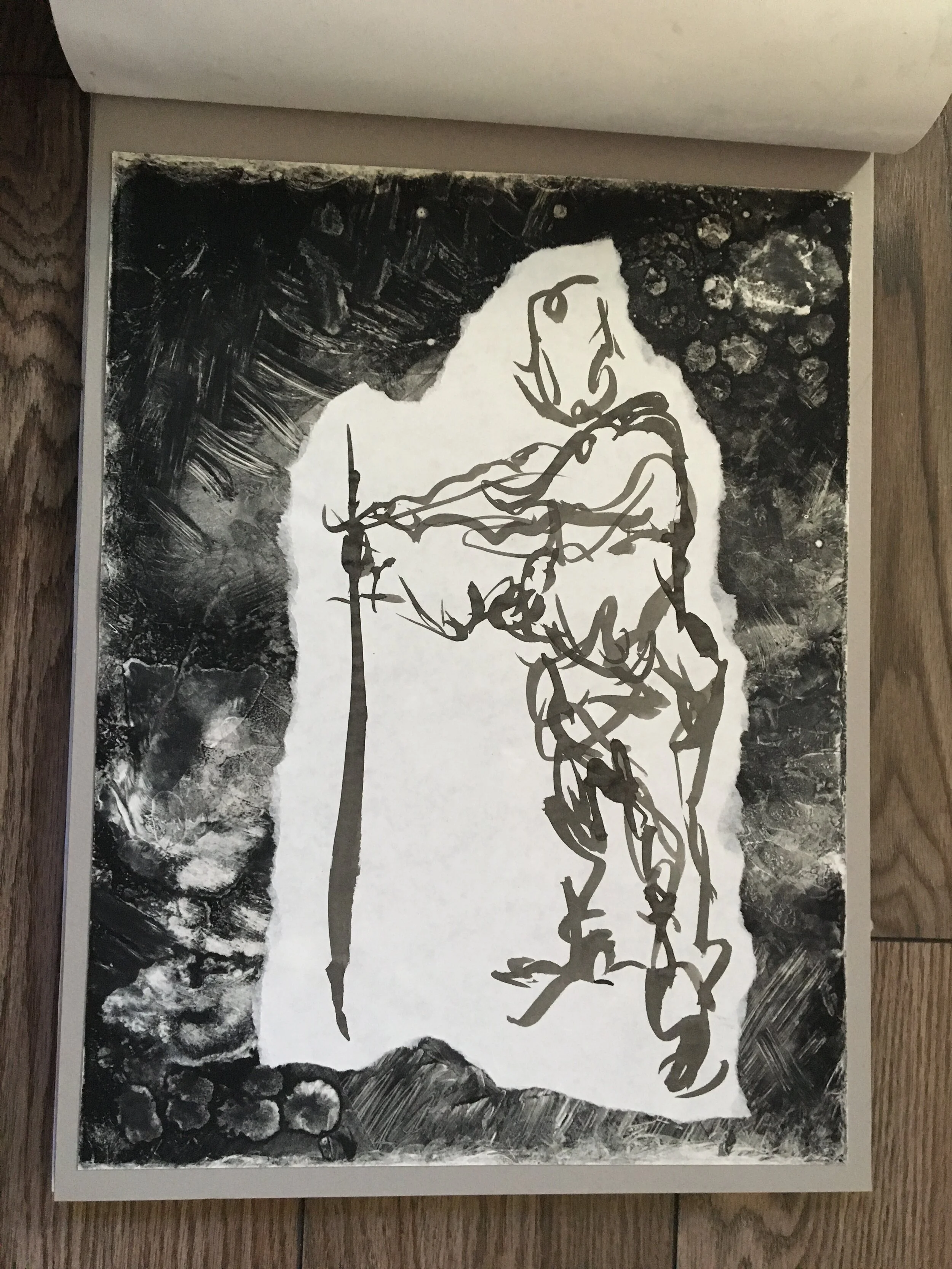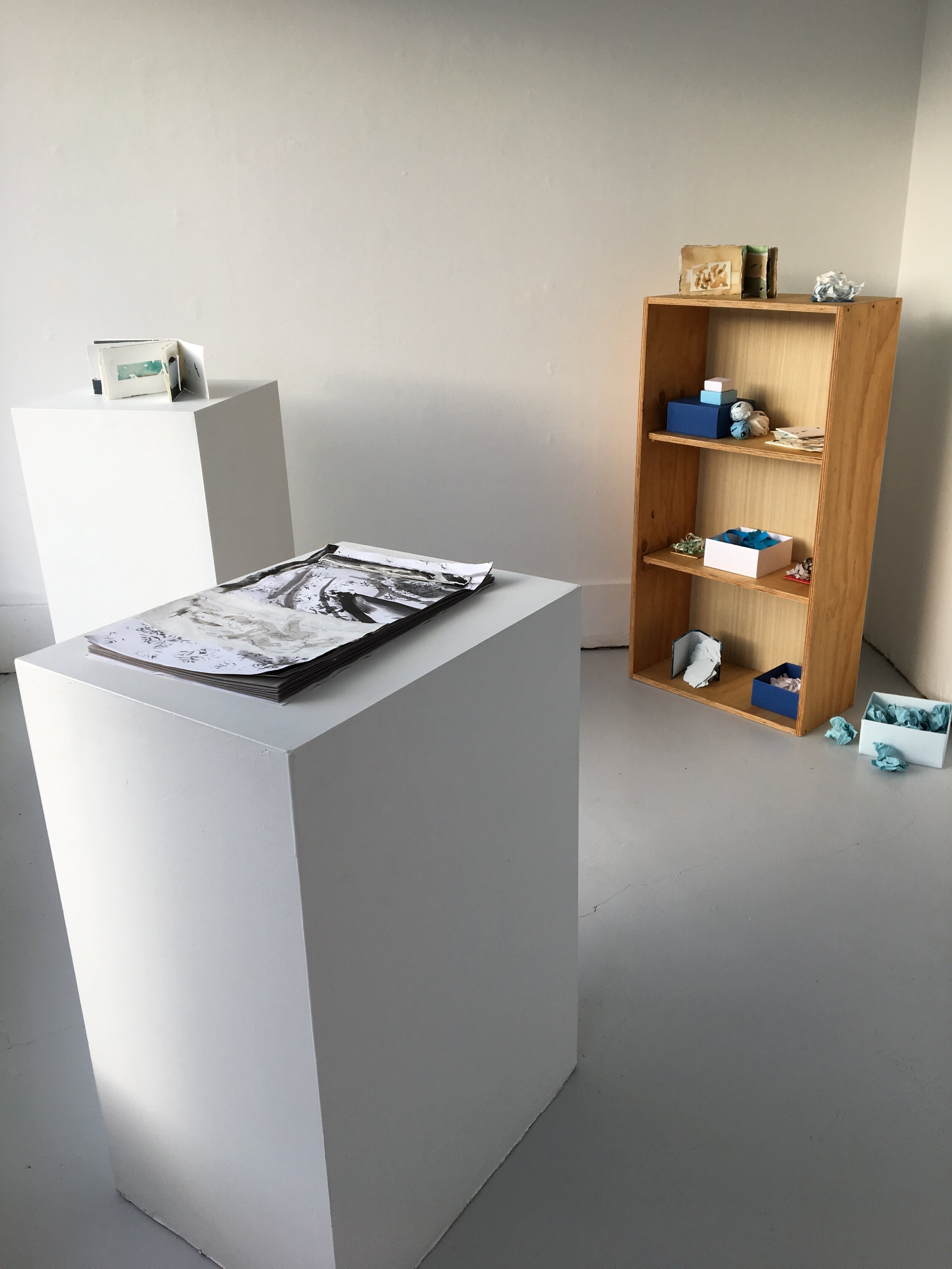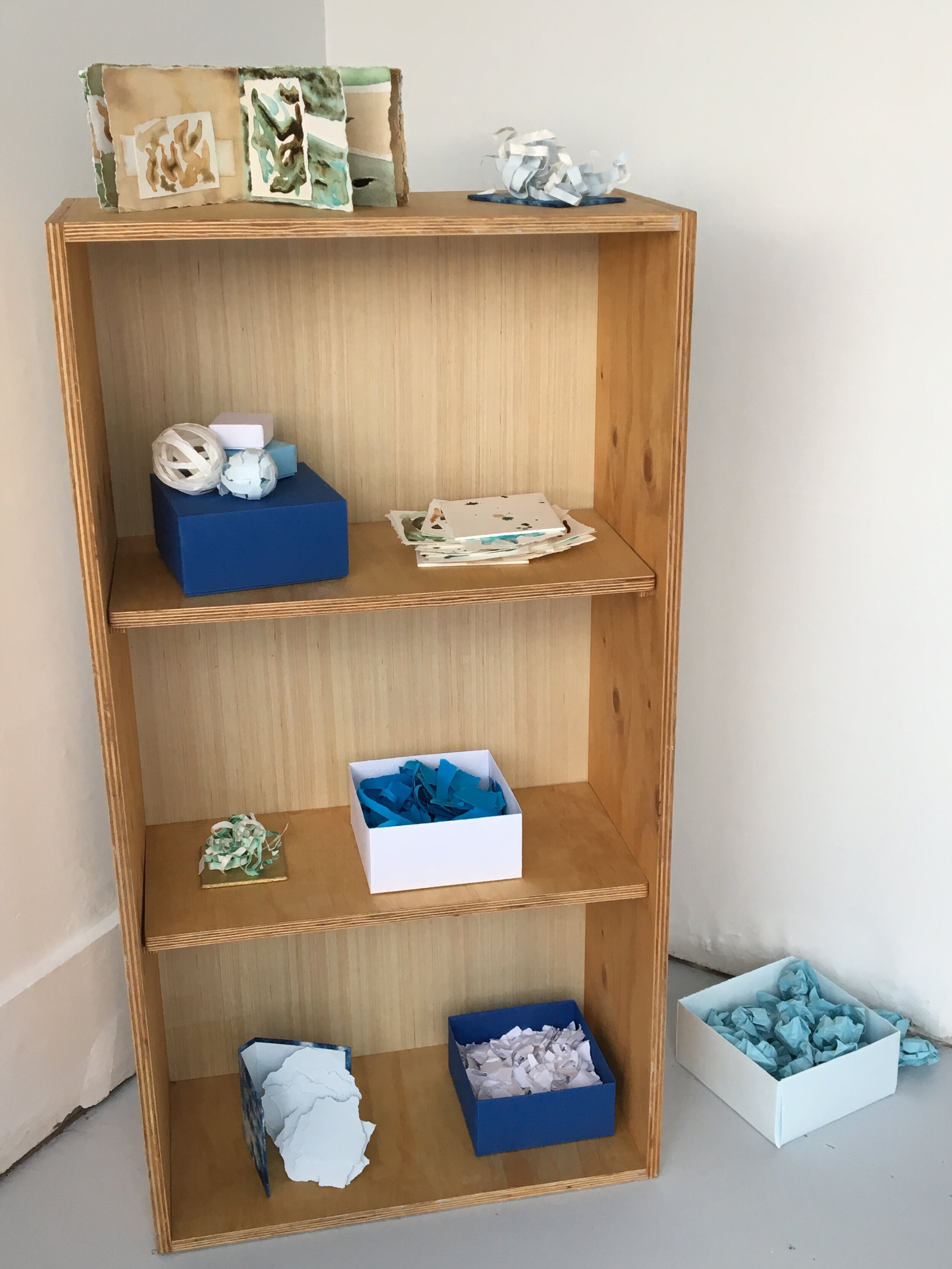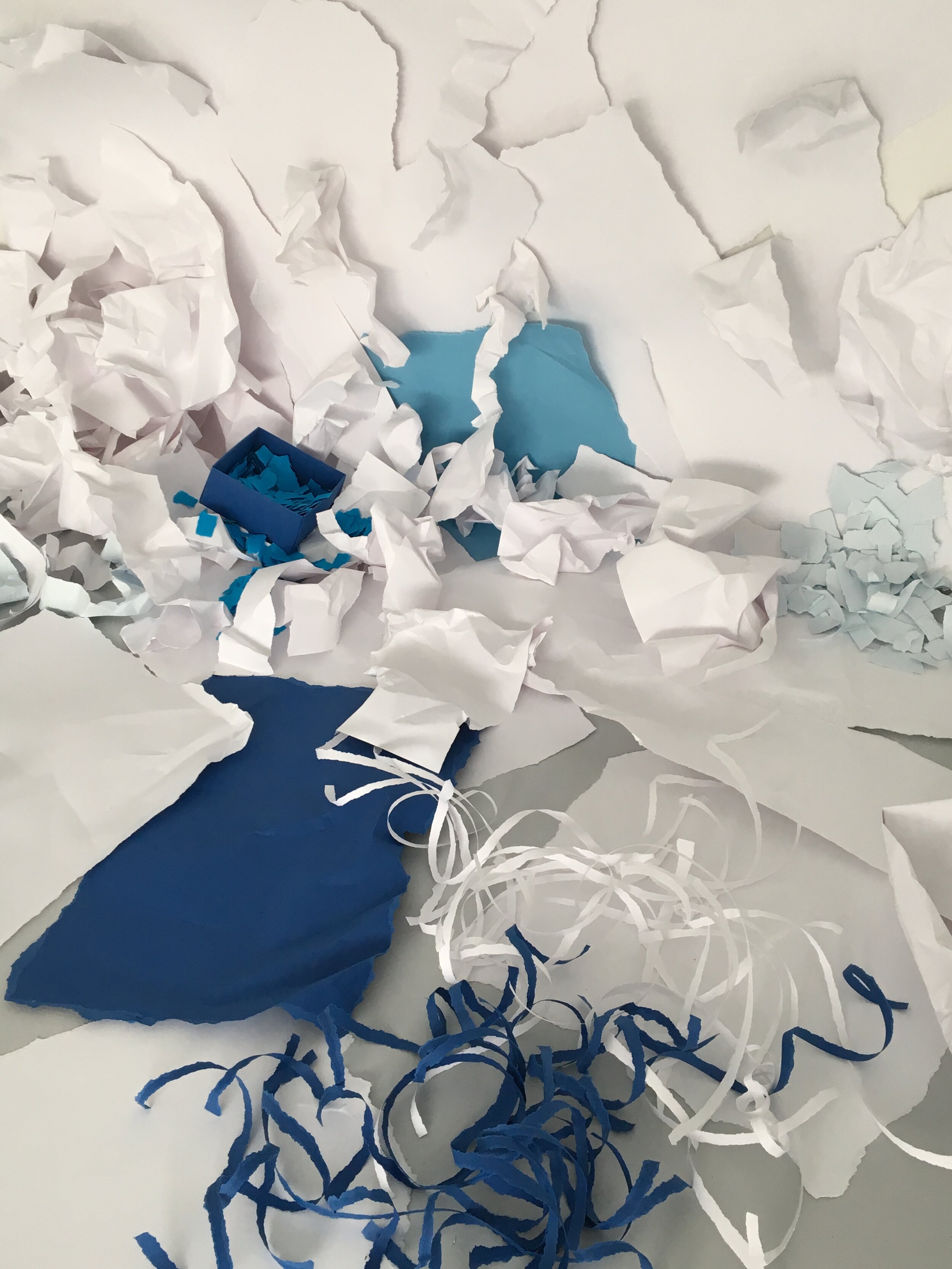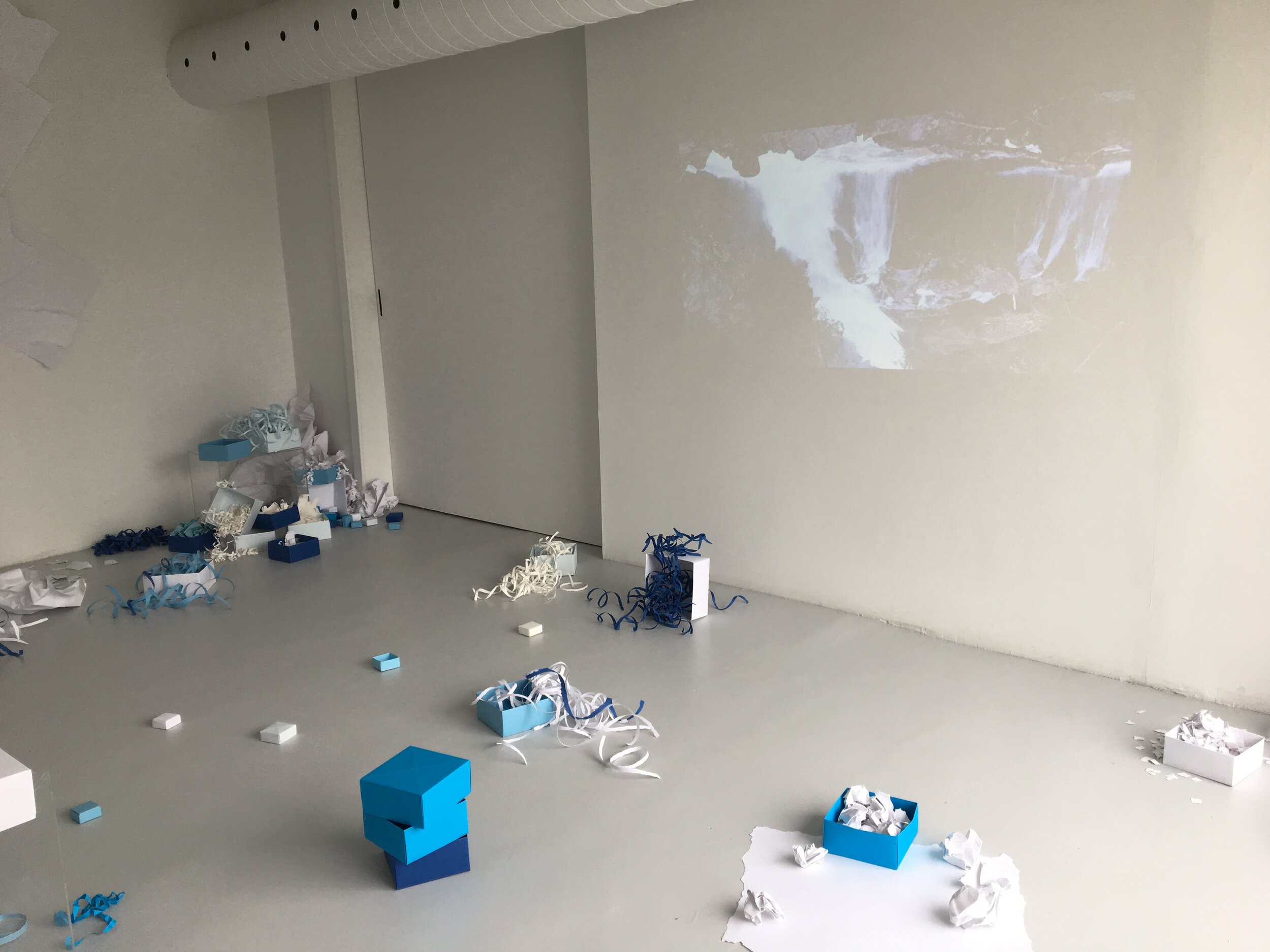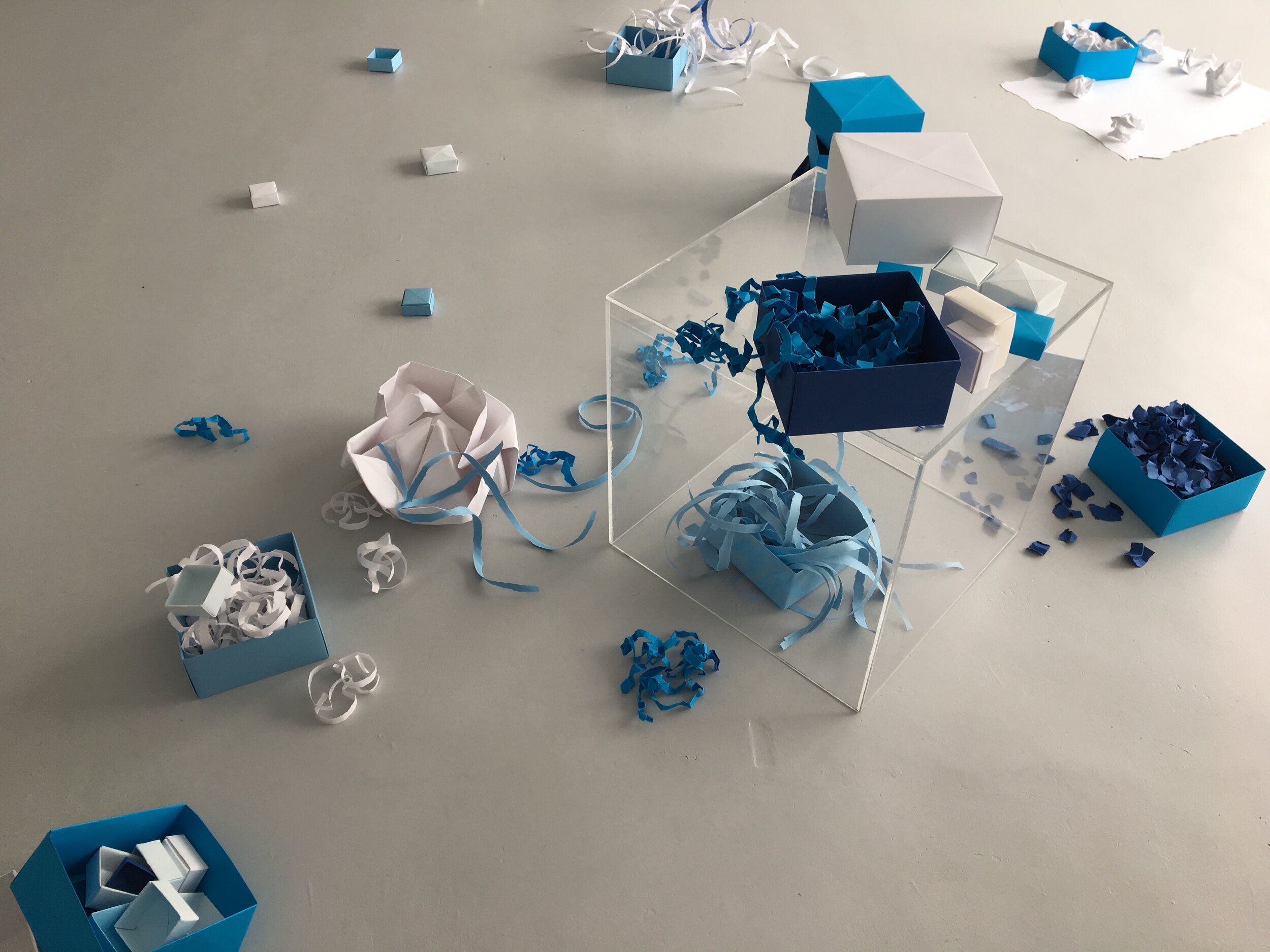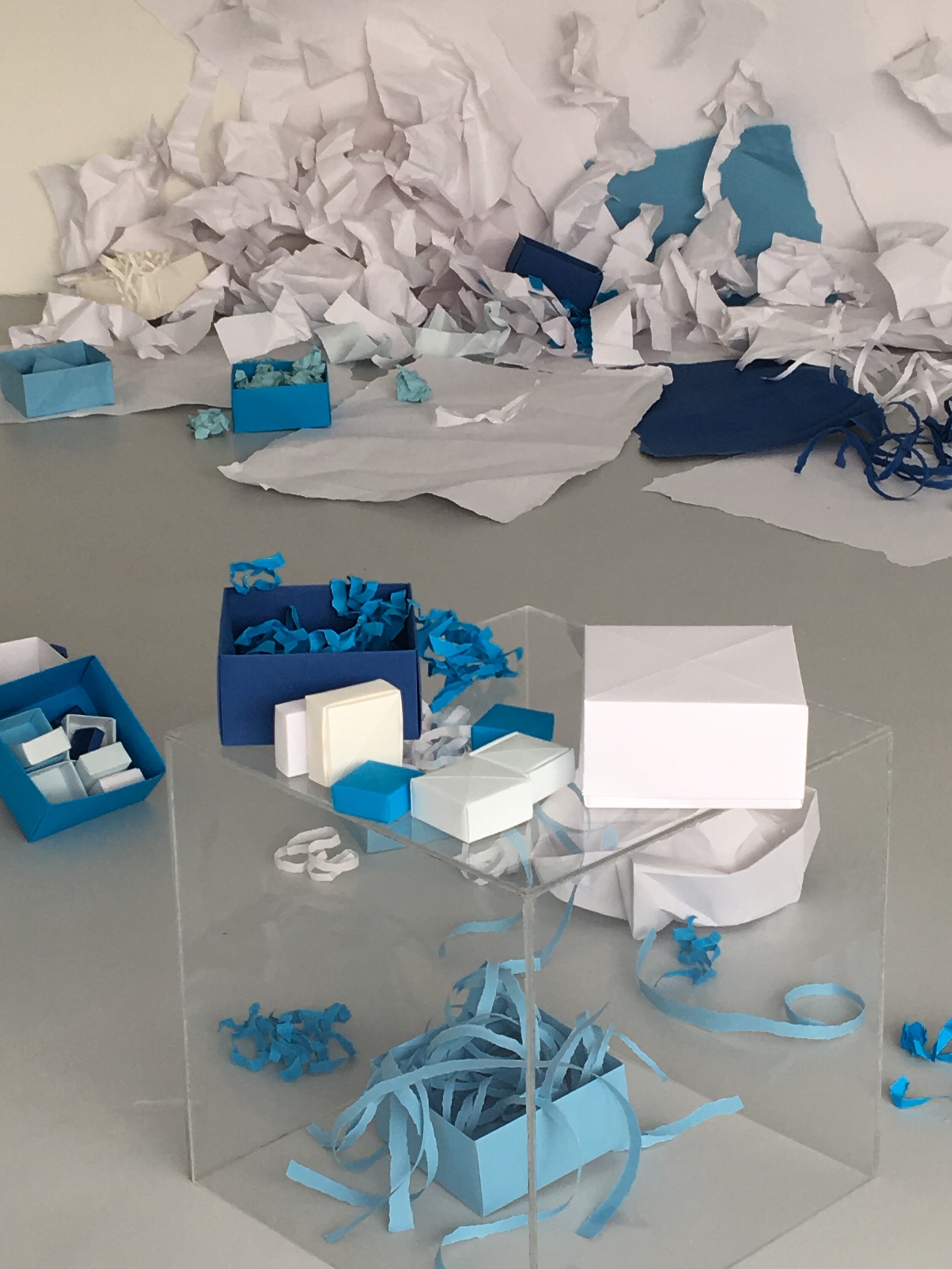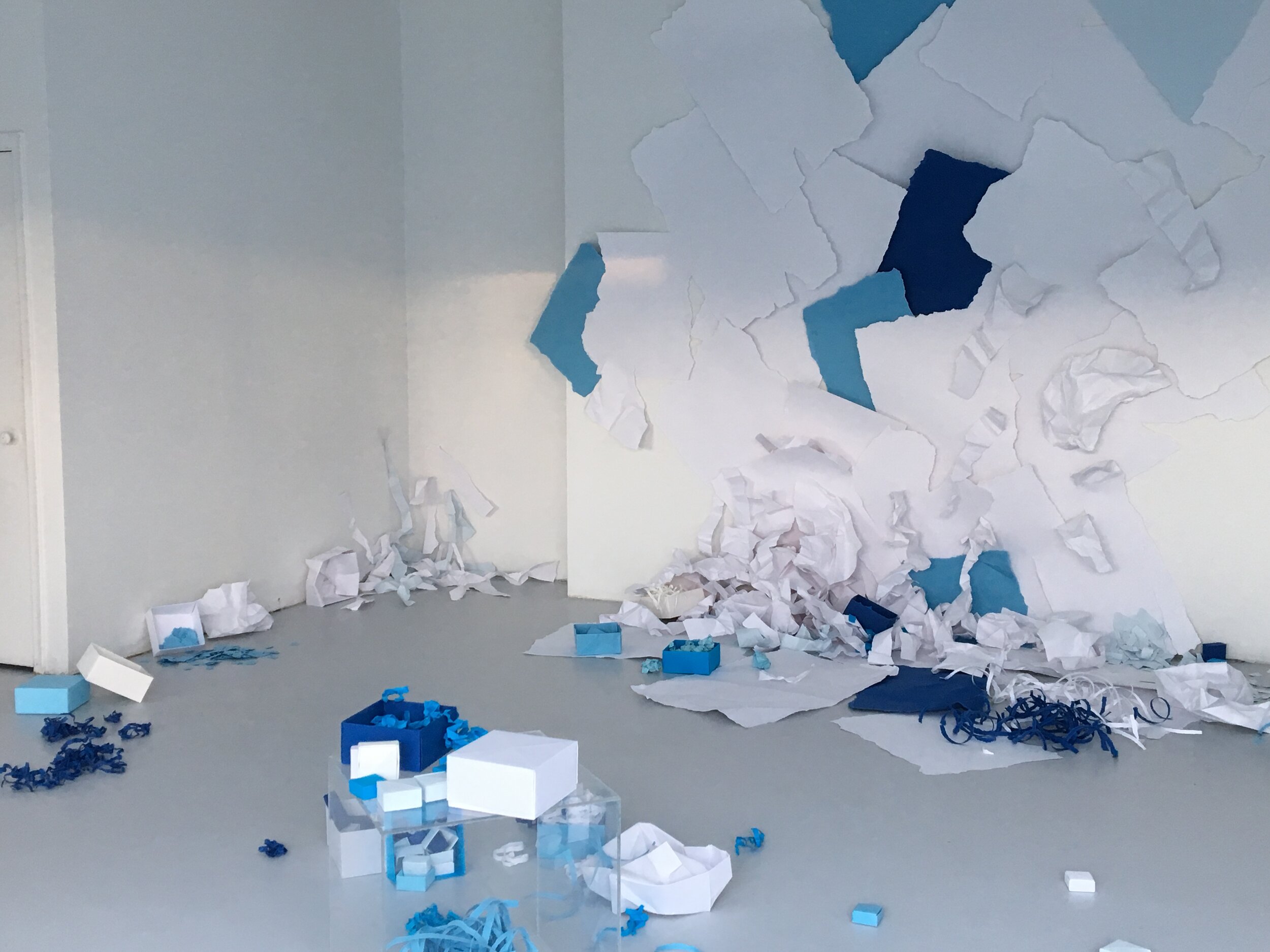Desiree Watson
Reason/Re-Season
Desiree Watson believes in the transcendent nature of art to redefine, shift perspective, and challenge perception, as well as allow and evoke emotional expression, spiritual truth, individual engagement, communal understanding, and societal transformation. As a multimedia, interdisciplinary artist, she uses art to both process and interpret life.
Watson began studying art in 1997 (earning a Fine Arts Diploma in Northern Alberta) and after many years, is now finishing her BFA in Northern Ontario. In the past she has used her art as advocacy to voice her own challenges of living as an artist with disability. Watson finds purpose and meaning in exploring visual and visceral tension through layers. She is passionate about exploring the purpose, power, and celebration of beauty. In her life and in her art, she has slowly learned to revere elements of violence, chaos, fragility, reclamation, structure, restoration, and beauty. Watson uses visual art to demonstrate tensions and connections between destruction and construction, chaos and harmony, the uncomfortable and the comfortable, solidity and fragility, brokenness and beauty, fractured and whole. Her most recent work includes exploring these dichotomies by breaking down/ripping apart plywood and then rebuilding it into harmonious, balanced pieces. Although Watson is passionate about embracing tension and reclaiming devastation, she enjoys simply recognizing, presenting, engaging with and celebrating beauty, especially the beauty of nature. It is very important for her to make space for beauty and to give others the opportunity to experience its healing attributes, through basking within, and feasting upon it.
It is my desire to use my work to help others engage fully with life.
This body of work is my visual articulation of this past year’s journey to face and feel, process and overcome. This is the way I spoke with wildness and weeping as I sought to make sense of my own limitations, our shared world, and my place in it. Rending, reckoning, collecting, containing, recording… This work is a season of my visual reasoning.
Through, 5 1/4x9 1/4, paper, silkscreen
Boundaries, 5 1/2”x7 1/2”, paper, homemade inks
Rip More Paper, 5 1/4x7, paper, homemade inks
Beautiful Chaos, 13x19", paper, collage, collected art pieces
Beautiful Chaos, 13x19", paper, collage, collected art pieces
Beautiful Chaos, 13x19", paper, collage, collected art pieces
Beautiful Chaos, 13x19", paper, collage, collected art pieces
Beautiful Chaos, 13x19", paper, collage, collected art pieces
Beautiful Chaos, 13x19", paper, collage, collected art pieces
Beautiful Chaos, 13x19", paper, collage, collected art pieces
Beautiful Chaos, 13x19", paper, collage, collected art pieces
Beautiful Chaos, 13x19", paper, collage, collected art pieces
Beautiful Chaos, 13x19", paper, collage, collected art pieces
Beautiful Chaos, 13x19", paper, collage, collected art pieces
Beautiful Chaos, 13x19", paper, collage, collected art pieces
Stacked Too, 5"x5", paper, homemade inks
Stacked Too, 5"x5", paper, homemade inks
Stacked Too, 5"x5", paper, homemade inks
Stacked Too, 5"x5", paper, homemade inks
Stacked Too, 5"x5", paper, homemade inks
Stacked Too, 5"x5", paper, homemade inks
Stacked Too, 5"x5", paper, homemade inks
Stacked Too, 5"x5", paper, homemade inks
Stacked Too, 5"x5", paper, homemade inks
Reasoning
Chaos. Noun. A state of utter confusion. Unorganized. Disarray. The inherent unpredictability in the behavior of a complex system.
Boundary. Noun. Something that indicates or fixes a limit or extent.
Limitation. Noun. An act or instance of limiting, being limited, something that limits, restraint.
Reason. Noun. The power of comprehending, inferring, or thinking especially in orderly rational ways, intelligence. Sanity. The sum of the intellectual powers.
Tear, tore, torn, tearing. Transitive verb. To separate parts of, or pull apart by force. To rend. To damage by pulling apart by force. To lacerate. To divide or disrupt by the pull of contrary forces. To remove by force. To wrench, tear away, remove. To make a hole by pulling apart by force.
Tear, tore, torn, tearing. Intransitive verb. To separate on being pulled, rend. To move or act with violence, haste, or force. To smash or penetrate something with violent force, tear through. To cause anguish to, distress (the grief tore at her heart). To tear into. To attack without restraint or caution. To cause frustration, defeat, or an end to plans or hopes.
Tear. Noun. Damage from being torn: especially a hole or flaw made by tearing.
Tear. Noun. A drop of clear saline fluid secreted by the lacrimal gland and diffused between the eye and eyelids to moisten the parts and facilitate their motion. A secretion of profuse tears that overflow the eyelids and dampen the face. An act of weeping or grieving.
Tear. Intransitive verb. To fill with tears, shed tears.
Reason. Intransitive verb. To use the faculty of reason so as to arrive at conclusions. To talk with another so as to influence actions or opinions. To take part in conversation, discussion, or argument.
Collect. Transitive Verb. To bring together into one body or place, gather an accumulation of, exact from. To infer, deduce. To gain or regain control of. To claim as due and receive payment for. To get and bring with one specifically.
Collect. Intransitive Verb. To come together, gather, to collect objects, to receive payment.
Collect. Noun. A short, assemblage prayer.
Collection. Noun. The act or process of collecting. A special accumulation of objects gathered for study, comparison, exhibition, or enjoyment.
Reason. Transitive verb. To discover, formulate, conclude, persuade or influence by use of reason. To justify or support with reasons.
Contain. Transitive verb. To enclose, to have within, hold, comprise, include. To keep within limits, restrain, control, check, halt. To follow successfully a policy of containment, to prevent (an enemy or opponent) from advancing or from making a successful attack.
Contain. Intransitive verb. To restrain oneself.
Reseason. Verb. To season (something) again or differently. To add more or different seasoning to.
Reseason. Transitive Verb. To treat (something) for use again.
Book Installation
Book Installation
Book Installation
Book Installation
Book Installation
Perhaps I WIll Venture More into the Chaos, paper, speakers
Perhaps I WIll Venture More into the Chaos, paper, speakers
Perhaps I WIll Venture More into the Chaos, paper, speakers
Perhaps I WIll Venture More into the Chaos, paper, speakers
Perhaps I WIll Venture More into the Chaos, paper, speakers
Perhaps I WIll Venture More into the Chaos, paper, speakers
Perhaps I WIll Venture More into the Chaos, paper, speakers
Perhaps I WIll Venture More into the Chaos, paper, speakers
Perhaps I WIll Venture More into the Chaos, paper, speakers
Perhaps I WIll Venture More into the Chaos, paper, speakers
Perhaps I WIll Venture More into the Chaos, paper, speakers
Perhaps I WIll Venture More into the Chaos, paper, speakers
Perhaps I WIll Venture More into the Chaos, paper, speakers
Perhaps I WIll Venture More into the Chaos, paper, speakers
Perhaps I WIll Venture More into the Chaos, paper, speakers
Overwhelmed, 35 sec
Regardless, 2:50 min














